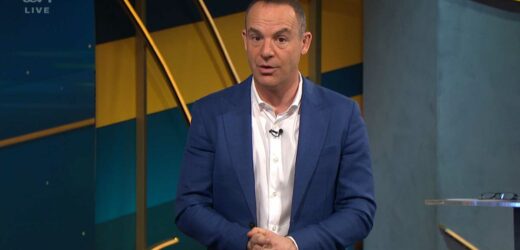MARTIN Lewis' MSE has issued an urgent warning about a "tax trap" which could leave savers being hit by a hefty bill.
In the latest MoneySavingExpert.com (MSE) newsletter, Martin warned readers how they could maximise their savings returns.
Fixed-rate savings accounts, which is where you lock money away with few withdrawals, have some of the highest-paying interest.
Customers can choose to pay their interest via two ways, either into another bank account or into the fix itself.
However, Martin said that how and where you pay your interest matters.
He said: "Fixed savings interest is paid out 'at maturity' (meaning when the account ends), annually, or more frequently."
Read more in money
Martin Lewis issues urgent warning as Brits could save money on Council Tax bills
Martin Lewis warns millions on benefits set to miss out on childcare help
Savers can either get the interest earned paid into another account or into the fix itself.
While the rate is usually the same however way you choose, where the interest is paid to can incur a hefty tax.
If you choose to have the interest paid into the fix itself, or at maturity, this can be a "tax trap", Martin warned.
He said: "It's the moment you can access the interest that crystallises it for tax purposes, so it all counts as interest income for that tax year."
Most read in Money
McDonald's returns with fan favourite and five NEW menu items TODAY
We can't sell our 'worthless' new-build homes after developer's 'mistake'
Iconic chain to close all UK stores in WEEKS after brand is bought by Next
I'm suing Lotto – they want to pay me £10…but I know I won £1m jackpot
This applies even for interest paid annually into a fix, as you can't access it which therefore means it's counted that you got it all at maturity.
"So for a long, say, three-year fix, you can be taxed as if you earned a lot of interest all at once."
Under the personal savings allowance, basic taxpayers can earn £1,000 a year of interest tax-free while higher taxpayers can earn £500 a year.
However, Martin added that by getting all your interest in one go, you "may bust that year's PSA".
This could mean you pay tax you wouldn't have done if the interest was paid more frequently.
"In fact, it'd take just £7,000 in the top three-year fix paid at maturity to bust the £1,000 limit – half that for a higher-rate taxpayer. "
As a result, Martin said savers may want to choose an account that pays interest more frequently.
This can help them avoid paying unnecessary tax.
How can I find the best savings rates?
With your current rates in mind, don't waste time looking at individual banking sites to compare rates – it'll take you an eternity.
Research websites like MoneyFacts and price comparison websites such as Compare the Market, GoCompare and MoneySupermarket will help save you time and show you the best rates available.
Read More on The Sun
People are only just realising what Asda stands for
Susanna Reid speechless after Anthony Joshua’s bizarre antics in GMB interview
There are five main types of savings accounts, and understanding the differences can help you narrow down the options.
- Easy-access savings accounts – usually allow unlimited cash withdrawals. However, this perk means they tend to come with lower interest returns.
- Regular savings accounts – generate decent returns but only on the basis that you pay in a set amount each month.
- Notice accounts – offer slightly higher rates than easy-access accounts but you'll need to give advance notice to your bank (up to 95 days) before you can make a withdrawal or you'll forfeit the interest.
- Fixed rate bonds – these offer some of the highest interest rates. However, if interest rates increase during your term you can't move your money and switch to a better account.
- Individual savings accounts (ISAs) – these can pay high interest but come with high withdrawal fees. But, Lifetime Isas are great for anyone aged 18-39 hoping to buy a house or save for retirement.
Do you have a money problem that needs sorting? Get in touch by emailing [email protected]
Source: Read Full Article











